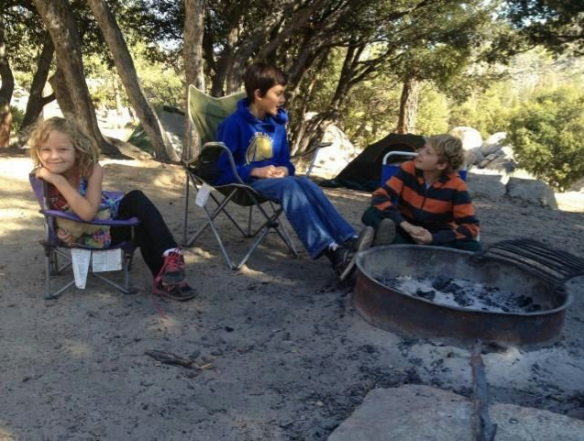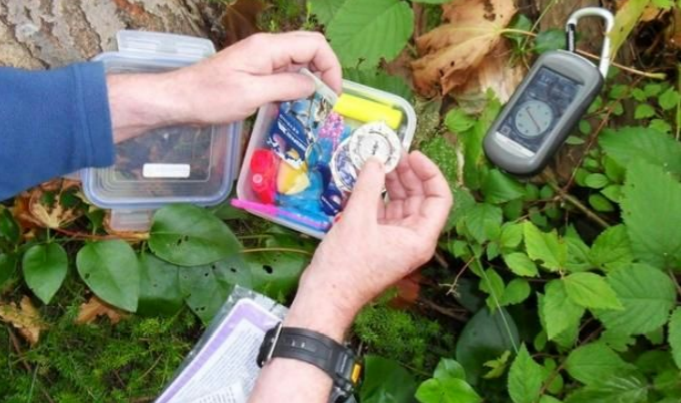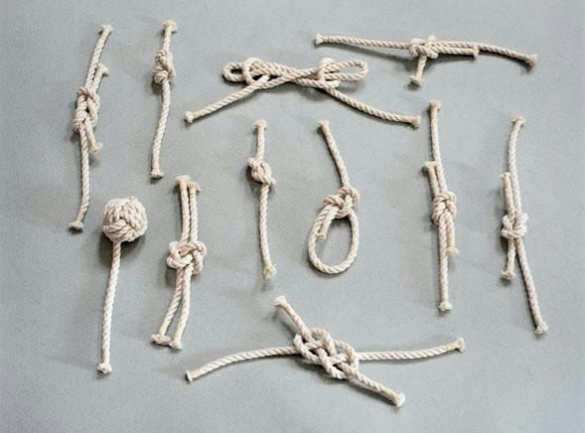Making it Fun & Educational
by Joe Fischer
Taking your kids camping is the perfect way to bond as a family and provides your children with ample opportunity to learn about nature. The only issue here is that many activities that adults find captivating are less than entertaining for the little ones, and boredom can quickly set in. This can be especially problematic as kids become more accustomed to being immersed in technology and simply cannot leave their phones, gameboys and other electronics alone.
That’s why it’s important to have some child-oriented activities planned out that keeps your children engaged during your next camping trip. I have selected a small list of activities that I found to be extremely effective on one of my recent family camping trips near Pisgah National Forest.
Ranger talks and nature programs
 A lot of times, parks and forests will offer ranger-led programs that guide kids through nature adventures. Pisgah National Forest is no different here. I took my kids on a ranger talk where they learned all about a variety of topics such as plant and wildlife, trees, geology and history of the area. This activity really kills two birds with one stone because firstly it’s a convenient means of entertainment, and secondly they can learn some interesting facts in the process. In turn, children can develop a better appreciation for nature and gain a deeper understanding of their environment.
A lot of times, parks and forests will offer ranger-led programs that guide kids through nature adventures. Pisgah National Forest is no different here. I took my kids on a ranger talk where they learned all about a variety of topics such as plant and wildlife, trees, geology and history of the area. This activity really kills two birds with one stone because firstly it’s a convenient means of entertainment, and secondly they can learn some interesting facts in the process. In turn, children can develop a better appreciation for nature and gain a deeper understanding of their environment.
The best thing about this is that these programs are usually mostly free to the public. Just visit a local ranger station or check out the park or forest’s website to learn more.
With a little creativity and resourcefulness, you can keep your kids entertained on your next camping trip and keep boredom at bay. This should make sure that everyone has a good time and hopefully get your kids excited about your outdoor adventure.
Scavenger Hunts
This is an excellent way to get children to explore the outdoors, awaken their desire for adventure and can keep them entertained for a long time, even during walks. It can also serve as a teaching opportunity because you can show your kids various trees and plants along the way, and you’re likely to end up in some interesting places that you may have never seen otherwise. The best part is that it’s fairly easy to initiate and doesn’t require a lot of planning.
All you have to do is create a list of items for your kids to find and give them a bag to collect. These items should be common in the area and demand some level of challenge without being overly frustrating. Some examples include:
An acorn
A pine cone
A wildflower
A smooth rock
Something fuzzy
Something straight
Something you think is beautiful
Just make sure to supervise a scavenger hunt, and ensure that there’s an adult monitoring each child at all times so no one gets lost.
Teach Survival Skills
Now this is something I’ve wanted to do for a long time. From being a small child I’ve always been immersed in learning about survival in various ways. In my imagination I was always lost alone and needed to get by on my own skills and resourcefulness. Upon talking to my children before our camping trip, it turned out they were no different. I decided to seize the opportunity and teach them some fun skills. Examples of skills to teach your children include:
Starting a fire – Teach your children the importance of fire, but also tell them about the dangers attached. You can make sure that your children will not be afraid of fire, but at the same time make sure that they respect it at all times!
How To Tie Knots – Some relatively simple, but extremely effective knots can be found online. There are knots that can prove useful in many different situations.
Foraging for food – We started off by talking about various plants and berries. For this, it is important to know what you are doing, as you’ll need to be able to identify what is edible and what is not. We actually started this before we went camping, as we planted some cabbage seeds in our back garden before we left. If you are in an area with water, you could also teach your kids how to fish.
Navigation – Think about compass and GPS training. Alternatively, you could also attempt to navigate by the position of the sun. This may require some more explaining though, as the sun constantly moves along the horizon.
Sending survival signals – This may at first seem a bit more difficult. Signalling generally involves morse code, which is not easy to learn properly, so make sure to print out a Morse key to give to your kids beforehand. You can use smoke signalling, or mirror signalling, or even use flashlights to try and signal messages across.
Learn to use walkie talkies and other radios – Many people that go out hiking take walkie talkies with them, and for a good reason. Cell phones often don’t have reception in mountainous or forestry areas and if anything happens they may be the only way to quickly contact the outside world for help. Search and Rescue teams all over the world monitor the emergency channels.
All of these things will equip your kids to survive in case of an emergency, but more importantly, kids love to learn things like this. By teaching them skills that they may or may not use in the future, you are engaging your children and showing them that learning can be great fun.
Geocaching
 The concept has really caught on in recent years with both kids and adults and can be a really fun way to spend an afternoon. All you need for this is a GPS device. There are GPS devices you can buy specifically for this, but alternatively you could use a smart phone, or some models of walkie talkies also come with GPS features.
The concept has really caught on in recent years with both kids and adults and can be a really fun way to spend an afternoon. All you need for this is a GPS device. There are GPS devices you can buy specifically for this, but alternatively you could use a smart phone, or some models of walkie talkies also come with GPS features.
At the moment, there are over two million geocaches worldwide, so there’s a high chance that there’s at least a few that are within a close proximity to your campsite. To get started, simply make an account on Geocaching.com. From there, you can find caches in your area and use GPS coordinates to navigate your way to their locations. Once you find a cache, you can sign the logbook and exchange items if you want. Besides being great fun for your kids, you may find yourself enjoying this activity as well.
About Joe
Joe Fischer is an outdoor enthusiast with over 12 years of experience of primitive camping and hiking. He started hiking as a way of getting fit, and has since travelled all over the USA to see the world. He has recently taken it upon himself to review important hiking gadgets on his website, Walkie Talkie Reviews.net.



3 Responses to Camping with Younger Kids